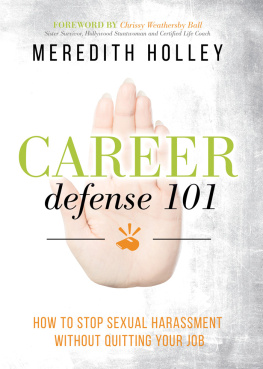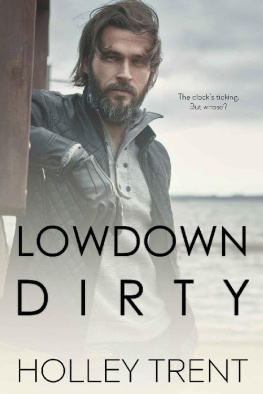All of social science is struggling to adapt to the Anthropocene. With this humane and smart book, criminology asks the important questions about how we adapt old practices and ways of thinking to a human-made, and human-threatened, world. Some answers are pessimistic, others are hopeful all are stimulating.
Scott Burris, Professor of Law, Temple University Beasley School of Law
This brilliant book shows how life in the Anthropocene throws up new challenges. The authors evocatively throw down the challenge of how to answer questions such as who is guilty of harms that undermine human security, how do we think about intent and responsibility across time, with myriad interacting causes, some human, some not? They take us on a confronting, compelling, thoughtful and insightful journey to re-think how we deliver security.
Valerie Braithwaite, Professor in the School of Regulation and Global Governance (RegNet), Australian National University
In this bold, involving and important book Shearing and Holley and their distinguished contributors address questions that are of compelling importance for our time and for any vision of the future that we can credibly imagine. For criminologists, as for practitioners of many disciplines, our human interactions with the planetary systems that sustain the diversity of life on earth pose questions of dizzying complexity and engender dangers of forbidding scope and scale. This book signals without bombast but with great urgency that nothing less than a complete re-assessment of our topics, concepts, theories and methods, and a thorough re-evaluation of our roles and responsibilities, will do.
Richard Sparks, Professor of Criminology, University of Edinburgh
Criminology and the Anthropocene
The Anthropocene signals a new age in Earths history, a human age, where we are revealed as a powerful force shaping planetary systems. What might criminology be in the Anthropocene? What does the Anthropocene suggest for future theory and practice of criminology? This book seeks to contribute to this research agenda by examining, contrasting and interrogating different vantage points, aspects and thinking within criminology.
Bringing together a range of multidisciplinary chapters at the cutting edge of thinking and environmental rethinking in criminology, this book explores a mix of key intractable problems of the Anthropocene, including climate change and overexploitation of natural resources that cause environmental insecurities; crime and corruption; related human insecurity and fortressed spaces; and the rise of new risks and social harms.
Of interest to scholars in the fields of criminology, sociology and environmental studies, this book provides readers with a basis for analysing the challenges of, and possible approaches to, the Anthropocene at all levels (local, national, regional and international) and discusses the future(s) of criminology for improving social policies and practices.
Cameron Holley is Associate Professor and Co-Director of Postgraduate Studies and manager/team leader of the Connected Waters Initiative Research Centre and the Global Water Institute at the University of New South Wales.
Clifford Shearing holds professorships at the Universities of Cape Town, Griffith and Montreal and positions at the University of New South Wales and the Durban University of Technology.
Criminology at the Edge
Edited by Benoit Leclerc
Ross Homel
Clifford Shearing
Griffith Criminology Institute, Griffith University, Australia
Over the last few decades, criminology has become known for its rigorous research methods and innovative analyses as well as for the development and testing of traditional and new theories. Criminology, as a science, has become known for its empirical-based theorizing and its dedication to enable this knowledge to contribute effectively to realizing the goal of creating safe and just societies. This interdisciplinary series explores innovative developments and imagined futures within criminology.
The objective of this series is to expand the boundaries of criminology and facilitate, encourage and disseminate the fruits of thorough and meticulous discussions of the most important emerging trends within criminology. Innovative criminologists will be encouraged to take risks as they imagine a criminology for the 21st Century, and to think outside existing criminological boxes.
1The Future of Rational Choice for Crime Prevention
Edited by Danielle M. Reynald and Benoit Leclerc
2Criminology and the Anthropocene
Edited by Cameron Holley and Clifford Shearing
First published 2018
by Routledge
2 Park Square, Milton Park, Abingdon, Oxon OX14 4RN
and by Routledge
711 Third Avenue, New York, NY 10017
Routledge is an imprint of the Taylor & Francis Group, an informa business
2018 selection and editorial matter, Cameron Holley and Clifford Shearing; individual chapters, the contributors
The right of Cameron Holley and Clifford Shearing to be identified as the authors of the editorial material, and of the authors for their individual chapters, has been asserted in accordance with sections 77 and 78 of the Copyright, Designs and Patents Act 1988.
All rights reserved. No part of this book may be reprinted or reproduced or utilised in any form or by any electronic, mechanical, or other means, now known or hereafter invented, including photocopying and recording, or in any information storage or retrieval system, without permission in writing from the publishers.
Trademark notice: Product or corporate names may be trademarks or registered trademarks, and are used only for identification and explanation without intent to infringe.
British Library Cataloguing-in-Publication Data
A catalogue record for this book is available from the British Library
Library of Congress Cataloging-in-Publication Data
Names: Holley, Cameron, editor. | Shearing, Clifford D., 1942 editor.
Title: Criminology and the anthropocene / edited by Cameron Holley and Clifford Shearing.
Description: Abingdon, Oxon ; New York, NY : Routledge, 2018. | Series: Criminology at the edge ; 2 | Includes bibliographical references and index.
Identifiers: LCCN 2017020264 | ISBN 9781138688230 (hardback) | ISBN 9781315541938 (ebook)
Subjects: LCSH: Criminology. | Offenses against the environment. | Human ecology.
Classification: LCC HV6030 .C7458 2018 | DDC 364dc23
LC record available at https://lccn.loc.gov/2017020264
ISBN: 978-1-138-68823-0 (hbk)
ISBN: 978-1-315-54193-8 (ebk)
Typeset in Goudy
by Apex CoVantage, LLC
To Aaron, Benjamin, Fiona, Gabriel, Graham, Joshua and Shiloh who, with their fellow earthlings, will inherit the earth we leave.














